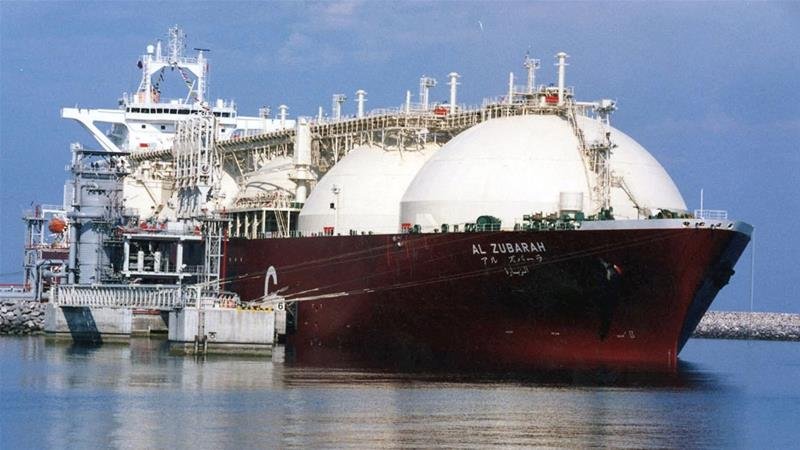Doha, Qatar
06 July 2017
(AlJazeera/Reuters)
Three of the West’s biggest energy corporations are lobbying Qatar to take part in a huge expansion of its gas production, handing Doha an unintended but timely boost in the Gulf dispute.
The chief executives of ExxonMobil, Royal Dutch Shell and France’s Total all met Qatar’s Emir Sheikh Tamim bin Hamad Al Thani in Doha before it announced a plan on Tuesday to raise output of liquefied natural gas (LNG) by 30 percent.
Company and industry sources told Reuters news agency that the CEOs had expressed interest in helping Qatar, the world’s largest LNG supplier, with its ambition to produce 100 million tonnes of LNG annually – equivalent to a third of current global supplies – in the next five to seven years.
The companies already have large investments in countries on both sides of the Gulf dispute, and are keen to remain neutral after Saudi Arabia, the United Arab Emirates, Bahrain and Egypt severed ties with Doha on June 5.
Spokespeople from all three firms declined to comment. However, a top executive from one energy major looking into expanding in Qatar said the huge business opportunity was worth the considerable political risk.
“There is only one policy here – you have to behave like a commercial corporation,” the executive told Reuters. “You have to make your choices purely economically and be Qatari in Qatar, Emirati in the Emirates.”
Economic muscle
Energy sales have powered Qatar’s rapid rise as a regional player since the late 1990s, and the oil majors’ interest in the LNG expansion underline its longer-term economic muscle during the row with its neighbours.
Qatar’s LNG capacity could be boosted by up to 10 million tonnes per year relatively quickly and cheaply by optimising existing facilities and upgrading a small number of units, a process known as “debottlenecking”, according to a senior industry source.
Beyond that, the expansion would require building new liquefaction terminals, involving significant investments, which the energy giants can offer.
Qatar is the world’s largest seller of liquefied Natural Gad (LNG). Most of the LNG comes from two major gas and oil fields, one of which is shared with Iran. While the Gulf’s diplomatic crisis is unlikely to affect energy prices in the short term, a prolonged rift could end prices soaring, analysts say.
Shell’s CEO, Ben van Beurden, was among the first foreign company leaders to visit Qatar after the crisis broke out, meeting the Emir on June 14.
The visit was followed several days later by a new deal under which Qatar will supply Shell, the world’s largest LNG trader, with 1.1 million tonnes annually for five years, starting in 2019.
Shell’s operations in Qatar include Pearl GTL, the world’s largest gas liquefaction plant. Its overall investments in the state represent around 6 percent of its global portfolio.
Darren Woods, chief executive of Exxon, met the Emir on June 26, discussing “cooperation” with Qatar, according to a statement carried by Qatar’s state news agency.
Industry sources close to the talks said that “the Exxon CEO was very keen to join the new gas capacity expansion and expressed willingness to invest”.
Exxon will be the largest foreign investor in Qatar in 2017, with most money going into LNG facilities, representing about 7 percent of its global portfolio, according to consultancy Wood Mackenzie.
Total chief Patrick Pouyanne has also visited Doha in recent weeks.
He discussed new opportunities in the LNG sector as well as the company’s plans to develop Qatar’s Al-Shaheen oilfield on his trip to Doha, according to a senior source.

Comments
Comments are closed.